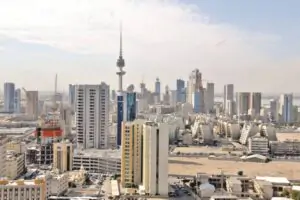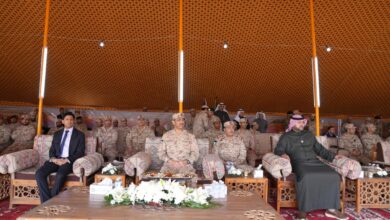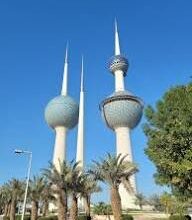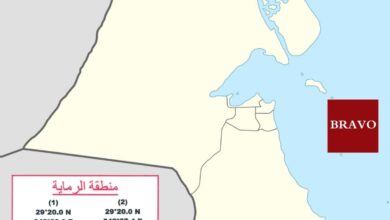Kuwait at 64, a proud past, a potential present, a promising future

By Tareq Yousef AlShumaimry
Editor-In-Chief
On the joyous occasion of the 64th anniversary of National Day and the 34th anniversary of Liberation Day, The Times Kuwait conveys its sincere congratulations to His Highness the Amir Sheikh Meshal Al-Ahmad Al-Jaber Al Sabah, His Highness the Crown Prince Sheikh Sabah Al-Khaled Al-Hamad Al-Sabah, His Highness the Prime Minister Sheikh Ahmad Abdullah Al-Ahmad Al-Sabah, and to the esteemed people of Kuwait, and seek God’s blessings on the nation and its people.
At the start of their regular meeting last week, the Council of Ministers headed by His HIghness the Prime Minister extended heartiest felicitations to His Highness the Amir, His Highness the Crown Prince, and to the honorable people of Kuwait, on the anniversaries of the National and Liberation Days. The Council prayed to God Almighty to protect Kuwait, its leadership, and its people, and to bless the nation with security, prosperity, and progress. The Council beseeched God’s mercy upon the nation’s martyrs, and implored Him to grant them eternal peace in His heavens.
Ambassadors, heads of missions and international organizations in Kuwait conveyed similar noble sentiments to the Kuwaiti leadership and people on the happy occasions. The stream of congratulatory messages and the outpour of affinity for Kuwait on the anniversaries of National and Liberation Days, reflect the warmth and esteem accorded to the country, its leadership, and people by the international community.
The sincere feelings expressed are also an attestation of the depth and breadth of support and respect for the noble values and principles embodied by Kuwait, including its efforts to promote peace and stability in the region, and its secular humanitarian initiatives that provide relief to people affected by crises worldwide. Humanitarianism, which has been a defining characteristic of Kuwaiti tradition, intensified following the discovery of oil and the country’s independence.
Kuwait became a fully independent nation on 19 June 1961, following an exchange of letters with the United Kingdom, which abrogated the Anglo-Kuwaiti Protectorate Treaty of 1899 that accorded Kuwait a Protectorate status under Great Britain. Kuwait’s path towards independence was spearheaded by Sheikh Abdullah Al-Salem Al-Sabah, the 11th ruler (1950–1961) and first Amir of Kuwait. To commemorate the ascension of Sheikh Abdullah on 25 February 1950, Kuwait decided in 1964 to advance the annual observance of National Day from 19 June to 25 February.
In the early decades of independence, the country’s oil wealth made Kuwait one of the most developed countries in the Arab world, introducing social, cultural, and political initiatives that made Kuwait an outlier among peers in the region. Kuwait embraced a democratic form of governance, with a constitution, universal franchise, and a vibrant parliamentary life.
In the 1960s and 70s Kuwait was known for its liberal social values, progressive views, and non-traditional attitudes, with the country soon becoming a regional cultural hub, famed for its freedom of expression and liberal media. The country was feted as a pioneer in the literary and artistic renaissance of the region, while its advancements in education and healthcare facilities attracted people from around the Arab world.
Domestically, the creation of a welfare state following independence catered to the needs of citizens providing them with free education, healthcare, and assured state employment. Meanwhile, the pursuit of prudent financial policies led to the creation of the world’s first sovereign wealth fund, Kuwait Investment Authority, which diversified the state’s bountiful earnings from oil exports into secure future investments in various economic sectors worldwide.
Kuwait’s growth and development since becoming an independent nation has been nothing short of remarkable. From its strategic role prior to independence as a center for sea-trade and an entrepot to the Arabian hinterland, Kuwait transformed, following independence, into a modern welfare state, a leading global exporter of oil, a regional leader in social and political initiatives, and a promoter of peace, economic growth and development.
Celebrations marking National and Liberation Days reflect our rich cultural heritage, provide us an opportunity to reconnect with our shared history, and to rekindle pride in our national identity. The national holidays also foster the spirit of unity, diversity, and coexistence among all people, and serve as an occasion to reiterate our commitment to the fundamental principles and ideals of the country.
As we celebrate the joyous occasion of the 64th National Day and the 34th Liberation Day, let us also proudly recognize Kuwait’s contributions to regional and global peace and stability. Kuwait has emerged as a beacon of diplomacy, fostering cooperation and dialogue in the Gulf region and beyond. Kuwait’s efforts in providing humanitarian aid, engaging in mediation efforts, and promoting peace and security in the region, have earned it respect on the international stage.
The anniversaries of National and Liberation Days are also a time to honor our ancestors for their efforts in securing the country’s independence, and to pay homage to the martyrs for the sacrifices they made to liberate Kuwait after the 1990-91 invasion and occupation. Against overwhelming odds, our parents and grandparents resisted the occupation and, with support from an international coalition, liberated the country and raised the flag of freedom over Kuwait.
Throughout history, Kuwait has consistently demonstrated resilience in the face of challenges. The economy grew stronger after the Souk Al-Manakh crisis in the early 1980s, the nation rebuilt after the Iraqi invasion and occupation in 1990-91, it overcame the global financial crisis in 2008 and 2014, and it weathered the COVID-19 pandemic in 2020-21. More recently, faced with persistent political instabilities that thwarted the country from achieving its full potential, the political developments of last year allowed Kuwait to once again emerge triumphant.
Since then, the Council of Ministers headed by His Highness the Prime Minister has affirmed the government’s commitment to achieving a bright future for Kuwait and its people over the coming decade. The Vision 2035 development plan calls for diversifying the economy, ensuring financial stability, encouraging private sector engagement, providing employment opportunities for youth, and ensuring inclusive and sustainable growth.,
Additionally, the Council indicated that it would introduce policies and plans that prioritize a shift towards sustainable development, digital empowerment, a knowledge-based economy, and to develop technologically advanced, sustainable and people-friendly smart cities to house citizens and businesses. To achieve this economic renaissance the government aims to overcome infrastructure gaps, introduce fiscal reforms, enhance the business environment, and attract foreign direct investments.
The Council of Ministers also emphasized that based on ambitious strategic plans the government seeks to enhance integrity, increase accountability, and improve the work and administrative environment to align with the country’s digital transformation. Additionally, investing in human capital, implementing plans to achieve sustainable goals, and maintaining the country’s strategic partnerships and multilateral engagements with the global community are government priorities..
The annual celebrations marking National and Liberation Days serve as a reminder to all of us that we need to persevere, exerting every effort to achieve our common goal of developing a prosperous, sustainable, equitable and inclusive nation The leadership’s plans for Kuwait, from diversifying the economy and promoting sustainability, to its commitment towards good governance, and a responsible and responsive government, certainly needs to be supported by all citizens.
In this regard, it is worth noting that the resilience demonstrated by Kuwait, when faced with adversities in the past, were achieved through the unity and support of people, and their steadfastness to the leadership and to the nation. We need to sustain this unity and harmony for a brighter future and to ensure that the flag of freedom continues to fly high over Kuwait now and forever.
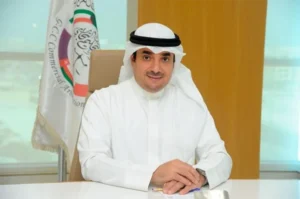
Tareq Yousef AlShumaimry, served as Chairman of the Finance Committee and Chairman of the General Budget Committee of the Permanent Court of Arbitration in The Hague (PCA) and an observer in the Administrative Council of the Court and the Consular at International Court of Justice (ICJ) and the Embassy of the State of Kuwait in the Netherlands during this period from 2013 to 2020. Email: tareq@alshumaimry.com







